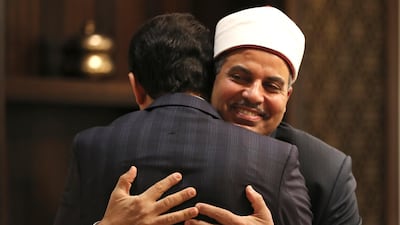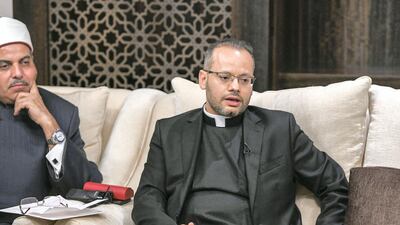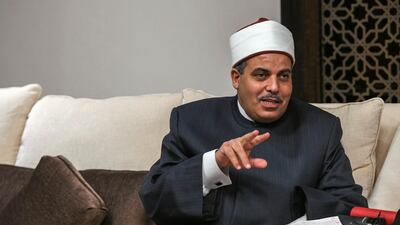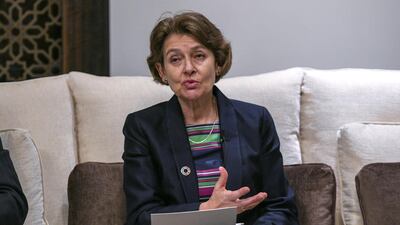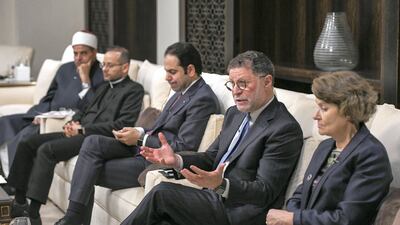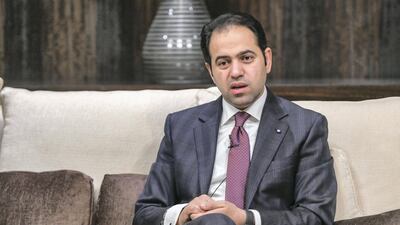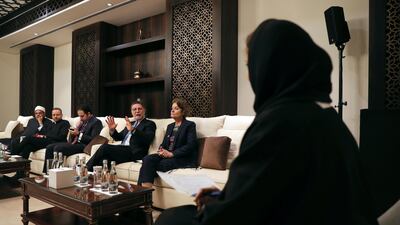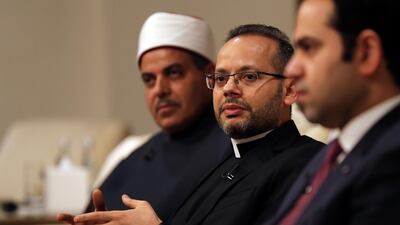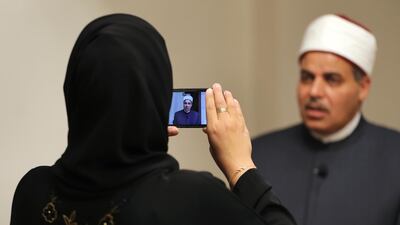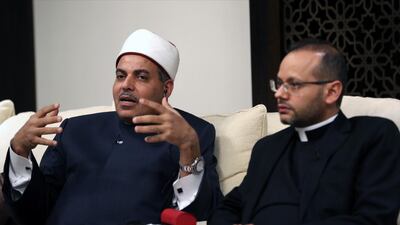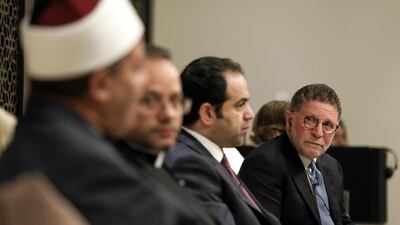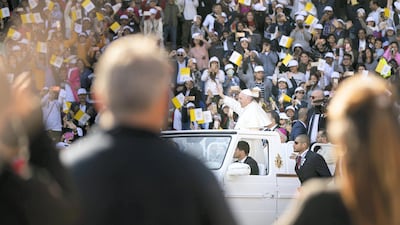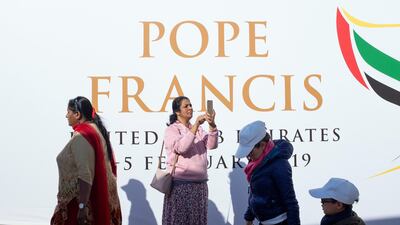Interfaith leaders gathered in Abu Dhabi on Monday to mark the anniversary of Pope Francis' landmark visit to the UAE.
The Higher Committee of Human Fraternity, a multi-faith committee dedicated to peace, met in the UAE capital to review plans for the year ahead.
The committee was formed in August to carry forward the values of the Document of Human Fraternity for World Peace and Living Together. The document, promoting coexistence and anti-extremism, was signed by Pope Francis and the Grand Imam of Al-Azhar University, Sheikh Ahmed El Tayeb one year ago.
The committee reviewed ways of turning the principles of the document into tangible efforts through dialogue.
“The document mentions some of the greatest things facing the world today and demands a greater sense of responsibility from each of us,” said Bruce Lustig, a senior rabbi at the Washington Hebrew Congregation and committee member.
“We are inextricably tied one to another and, because of that tie, we have a moral responsibility to lift up. We live in a world of close to 70 million refugees and our planet has more displaced people than at almost any other time in human history. This document calls on us to deal with the fallout of that.”
This year, the committee will make a moral appeal for political leaders and grassroots activists to commit to document goals. Its members will meet 150 young people and religious leaders at the Voices of Human Fraternity Forum on Tuesday.
“I think it is important indeed to look at this document as a foundational document in our time when we see the rise of extremism, of hate speech and xenophobia,” said Irina Bokova, a committee member and the former director-general of Unesco.
Grassroots movements can push commitments from political leaders, she said.
“It’s a fairly new committee that was created last August and we’re still into the thinking of how indeed to encourage each other to follow suit.
“We are not an institutional structure, we are not an organisation,” Ms Bokova said. “We want to encourage others to follow, we want to inspire them, we want to join with other existing platforms and encourage them to go deeper into this kind of work.”
The council of Egypt’s Al Azhar University, the revered 1,000-year-old seat of Sunni Islamic learning, recently named 2020 the year of Human Fraternity, in honour of the document.
The university teaches the principles of the Fraternity Document to its students. Additionally, its scholars have encouraged the principle that the notion of minority should be replaced with the concept of citizenship on the basis that this will limit isolation.
The committee’s independence from any government is critical to ensure its “full neutrality” and “full freedom to achieve human fraternity”, Judge Mohammed Abdel Salam, the general secretary of the nine-member committee, said on Monday.
The Abrahamic Family House, which will house a church, mosque and synagogue, will be the physical manifestation of the document's values, said Rabbi Lustig. It will open on Saadiyat island in 2022.
Pope Francis’ trip in February last year was the first papal visit to the Arabian Peninsula and culminated in a mass for 180,000 Christians. His visit underscored the presence of minority Christians in the region.
At the meeting on Monday, Youannis Lahzi Gaid, the personal secretary to Pope Francis, said people yearn for good.
“The strength of religious creed compels others to do good deeds,” he said. “We believe that goodness is much stronger than evil.”
